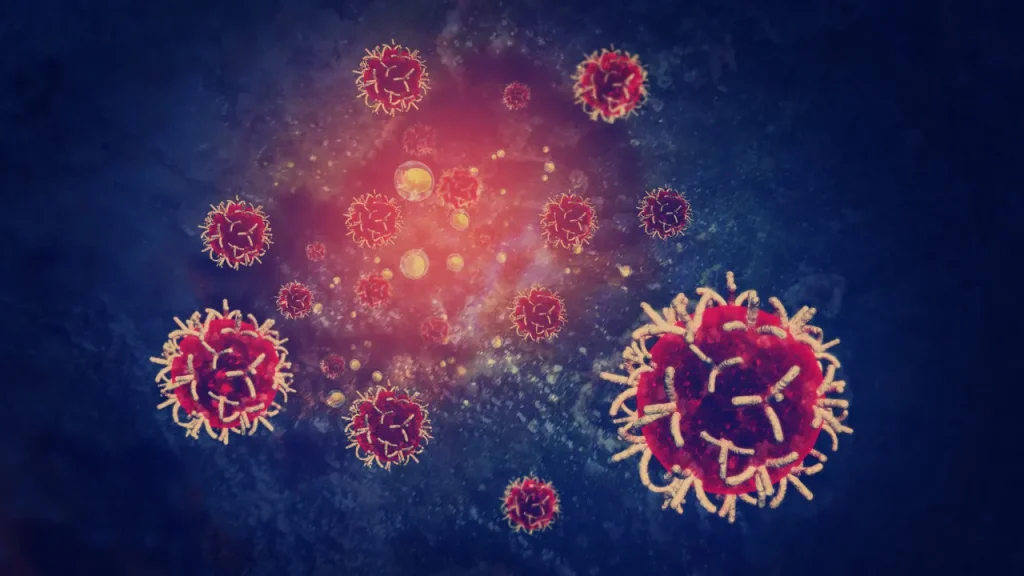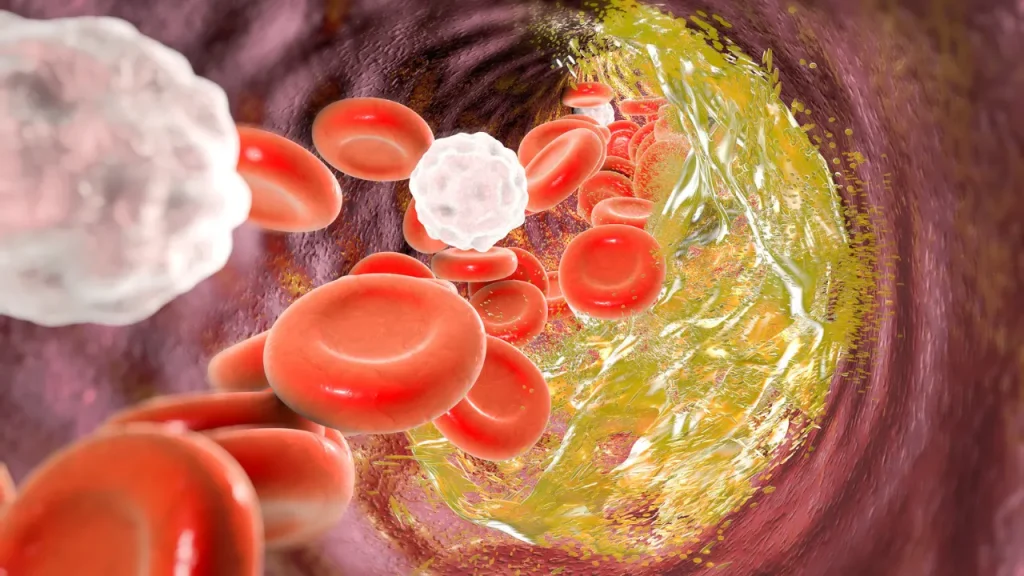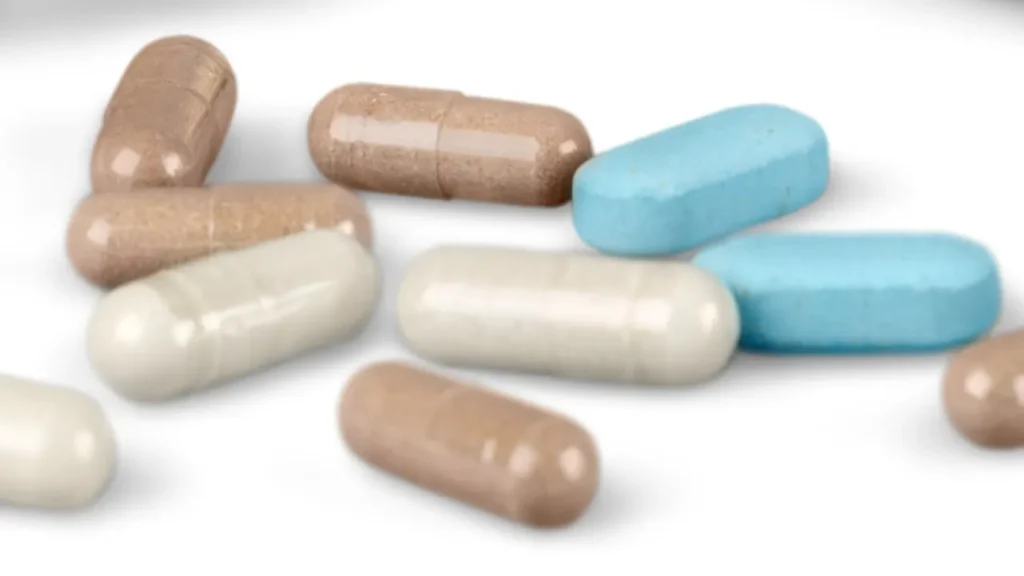Beta-glucans are a type of naturally occurring polysaccharides that are found in the cell walls of many plants, fungi, yeast, and bacteria. These fibers can’t be digested. In recent years, these bioactive substances have gotten a lot of attention because they may have some health benefits, such as helping the immune system, fighting cancer, and lowering cholesterol in the blood. This piece aims to tell you everything you need to know about beta-glucans, including what they are, how they work, the best way to take them, possible side effects, drug interactions, and how to use them safely.
You May Also Like:
The Best Supplements for Memory and Brain Fog: 5 Top Brands Reviewed
Finding the Best Supplements for Brain Fog After COVID: 5 Top Brands Reviewed
Beta-Glucans: Benefits, Dosage, Side Effects, Drug Interactions, and Other Important Information is an original (NootropicsPlanet) article.
Nature of Beta-Glucans
Beta-glucans are heteropolysaccharides that are made up of glucose molecules joined together in long, straight chains by -glycosidic bonds. The most common types of beta-glucans are -(1,3)-D-glucan, -(1,4)-D-glucan, and -(1,6)-D-glucan. The numbers show the type of glycosidic bond. Beta-glucans have many different biological functions and health benefits because of their difference in structures.
Beta-glucans are mostly found in oats, barley, shiitake, reishi, maitake mushrooms, and yeast (Saccharomyces cerevisiae). Each source has a different structure, which has a big effect on their physical and chemical qualities, solubility, and biological activity. For example, most beta-glucans from cereals have a structure called -(1,3)/(1,4)-D-glucan, while most beta-glucans from fungi and yeast have a structure called -(1,3)/(1,6)-D-glucan.
Health Benefits of Beta-Glucans
Immune System Support:
Beta-glucans are well known for their immunomodulatory benefits, which include making the innate immune system stronger and more active. By binding to particular receptors on immune cells like macrophages, neutrophils, and natural killer cells, beta-glucans set off a chain reaction of immune responses, including the release of cytokines, chemokines, and other inflammatory mediators. Research has shown that eating beta-glucans can make you less likely to get sick, lessen the bad effects of stress on your immune system, and lessen the severity of immune-related illnesses like allergies and autoimmune diseases. Beta-glucans may also have anti-cancer benefits because they can make your immune system work better.
Anticancer Properties:
Studies have shown that beta-glucans may be able to fight cancer by making immune cells more harmful to tumor cells, stopping tumor growth and metastasis, and changing the environment around the tumor. Fungal-derived beta-glucans, in particular, have been shown to increase the production of anticancer cytokines and the action of natural killer cells, which are very important for killing tumor cells.
How to Lower Blood Cholesterol:
Beta-glucans found in cereals, especially oats and barley, have been studied a lot for their ability to lower cholesterol. They lower blood cholesterol by binding to bile acids in the digestive system. This makes the liver convert more cholesterol into bile acids. This lowers the amounts of low-density lipoprotein (LDL) cholesterol, which is often called “bad cholesterol.”

Chemistry of Beta-Glucans
Beta-glucans are made up of linear chains of D-glucose monomers that are held together by -glycosidic links. There are three main types of glycosidic linkages in beta-glucans: -(1,3), -(1,4), and -(1,6). Some molecules have structures with more than one type of linkage. The source of beta-glucans affects their branching pattern, degree of polymerization, and molecular weight, which in turn affects their physicochemical qualities, solubility, and bioactivity.
For instance, beta-glucans from grains like oats and barley are mostly made up of -(1,3) and -(1,4) linkages, with the -(1,4) linkage being the most common. These beta-glucans can dissolve in water and make very thick solutions, which helps them lower cholesterol and act as prebiotics. On the other hand, beta-glucans that come from fungi and yeast are mostly made up of -(1,3) linkages with -(1,6) branches, which gives them a more complicated and heterogeneous structure. This leads to a higher molecular weight and a lesser solubility, which are linked to their anticancer and immune-modulating qualities.
Physiological Mechanisms of Action of Beta-Glucans
Beta-glucans are good for your health in many ways and some of the most important ways it works are:
- Modulation of the immune system: Beta-glucans work as pathogen-associated molecular patterns (PAMPs) and bind to pattern recognition receptors (PRRs) on immune cells like macrophages, neutrophils, and dendritic cells, such as Dectin-1 and complement receptor 3 (CR3). This binding starts a signalling chain that turns on transcription factors like nuclear factor-kappa B (NF-B) and lets out cytokines and chemokines. These molecules find and activate other immune cells, which improves the immune reaction of the body as a whole.
- Effects on cancer: The main reason why beta-glucans fight cancer is because they boost the immune system. Beta-glucans help the body find and kill tumor cells by getting immune cells like natural killer (NK) cells and cytotoxic T lymphocytes to work. Also, beta-glucans can change the environment around a tumor by stopping angiogenesis (the growth of new blood vessels) and lowering the production of hormones that promote tumor growth.
- Lowering cholesterol: The ability of water-soluble beta-glucans to make highly viscous solutions in the digestive tract is the main reason why they lower cholesterol. This makes it harder for bile acids to move from the intestines to the liver, which increases the amount of bile acids in the feces. So, the liver has to make more bile acids from the moving cholesterol, which lowers the LDL cholesterol levels in the blood.
In conclusion, the chemical and physiological actions of beta-glucans are complicated and rely on where they come from and how they are made. Their different health benefits, such as helping the immune system, fighting cancer, and lowering cholesterol, are caused by the unique ways they connect with cellular receptors and change different biological pathways.

Optimal Dosage of Beta-Glucans
The best amount of beta-glucans to take depends on where they come from and what health benefits you want to get from them. The European Food Safety Authority (EFSA) and the U.S. Food and Drug Administration (FDA) say that 3 gm of beta-glucans from oats or barley should be eaten every day to lower cholesterol levels. It has been shown that this amount lowers LDL cholesterol by 5–10% in people with mildly to moderately high cholesterol levels.
The best amount of yeast- or fungus-derived beta-glucans to help the immune system has not been set in stone. However, most studies show that 100–500 mg per day is a safe and effective level for adults. It’s important to remember that people’s reactions to beta-glucan supplements can vary, so it’s best to talk to a doctor before starting to take supplements.
Side Effects of Beta-Glucans
Beta-glucans are usually thought to be safe to take, and few side effects have been reported. Some people may have minor stomach problems like bloating, gas, or diarrhea, especially if they take a lot of it or start taking supplements for the first time. Most of the time, these side effects go away as the body gets used to the drug.

Potential Substance Interactions with Beta-Glucans
Beta-glucans may combine with some drugs, like:
- Immunosuppressive drugs: Since beta-glucans boost the immune system, they may lower the effectiveness of immunosuppressive drugs used to avoid organ transplant rejection or treat autoimmune diseases. So, people who are on immunosuppressive treatment should talk to their doctor before starting to take beta-glucan supplements.
- Anticoagulant and antiplatelet drugs: Beta-glucans have been shown to have weak anticoagulant and antiplatelet effects, which may make anticoagulant drugs (like warfarin) and antiplatelet drugs (like aspirin) work better. Before taking beta-glucan supplements, people who take these medicines should talk to a doctor or nurse.
Responsible Usage of Beta-Glucans
To make sure that beta-glucans are safe and useful as a nutritional supplement, the following suggestions should be taken into account:
- Source and purity: Choose beta-glucan products from well-known, trustable sources that tell you where they source beta-glucans and how pure they are.
- Dosage: Follow the suggested dosage guidelines based on the health benefit you want, the source of the beta-glucans, your age, weight, and health status.
- Talk to a healthcare provider. You should always talk to a healthcare provider before starting a new supplement, especially if you already have a health problem or are on medicine.
- Watching: Watch how you react to beta-glucan supplements and change the dose or stop using them immediately if you encounter any side effects.
Beta-Glucans:
Conclusion
Beta-glucans can be said to be the main polysaccharides found in many plants, fungi, and bacteria. However, how can this component be a potential health supplement for us? Beta-glucans are believed to contribute to immune system support and modulation. If you are looking for any anti-cancer supplements, beta-glucans can serve as a good platform to start as they can harm tumor cells and stop them from metastasizing. When you explore the possibilities of Beta-glucans, you must include factors such as your individual health needs and always seek guidance from healthcare professionals for personalized advice. Choosing reputable sources for Beta-glucans supplements also adds an additional layer of assurance, ensuring the quality and reliability of the product.

References:
- Beta-glucans: a comprehensive review of their properties, metabolism, and health benefits. Retrieved from: https://www.mdpi.com/1996-1944/10/11/1261
- Nutraceutical Functions of Beta-Glucans in Human Nutrition. Retrieved from:https://pubmed.ncbi.nlm.nih.gov/31960663/#:~:text=Beta%2Dglucan%20reduces%20cholesterol%20and,of%20cardiovascular%20disease%20and%20diabetes.
- Effects Of Beta-Glucans on The Immune System. Retrieved from:https://pubmed.ncbi.nlm.nih.gov/17895634/
Important Note: The information contained in this article is for general informational purposes only, and should not be construed as health or medical advice, nor is it intended to diagnose, prevent, treat, or cure any disease or health condition. Before embarking on any diet, fitness regimen, or program of nutritional supplementation, it is advisable to consult your healthcare professional in order to determine its safety and probable efficacy in terms of your individual state of health.
Regarding Nutritional Supplements Or Other Non-Prescription Health Products: If any nutritional supplements or other non-prescription health products are mentioned in the foregoing article, any claims or statements made about them have not been evaluated by the U.S. Food and Drug Administration, and such nutritional supplements or other health products are not intended to diagnose, treat, cure, or prevent any disease.


